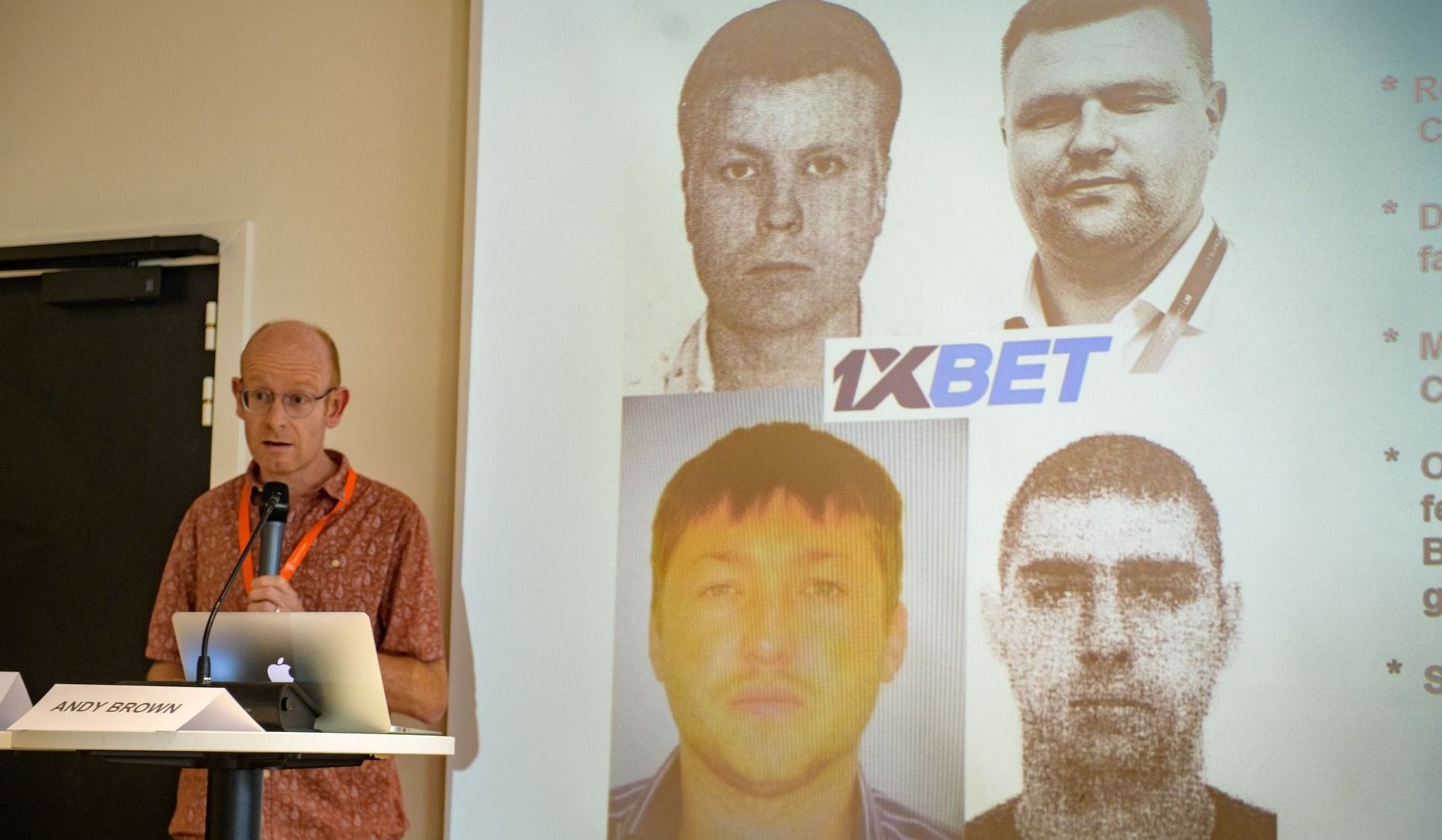THE INQUISITOR project is committed to the core tasks of journalism: truth, incorruptibility, investigation, enlightenment, documentation, information, explanation and analysis.
THE INQUISITOR aims to be a leading independent, investigative media dealing with governance that lacks transparency and integrity, focussing on the Olympic system but including non-olympic sports and organisations.
Our alliance is in the journalistic tradition of the late Andrew Jennings and makes it possible to shed more light on the fundamental problems of world sport – for you, our members: readers and subscribers. We are fulfilling a journalistic mission that hardly any other media consistently fulfills to such an extent in this subject area.
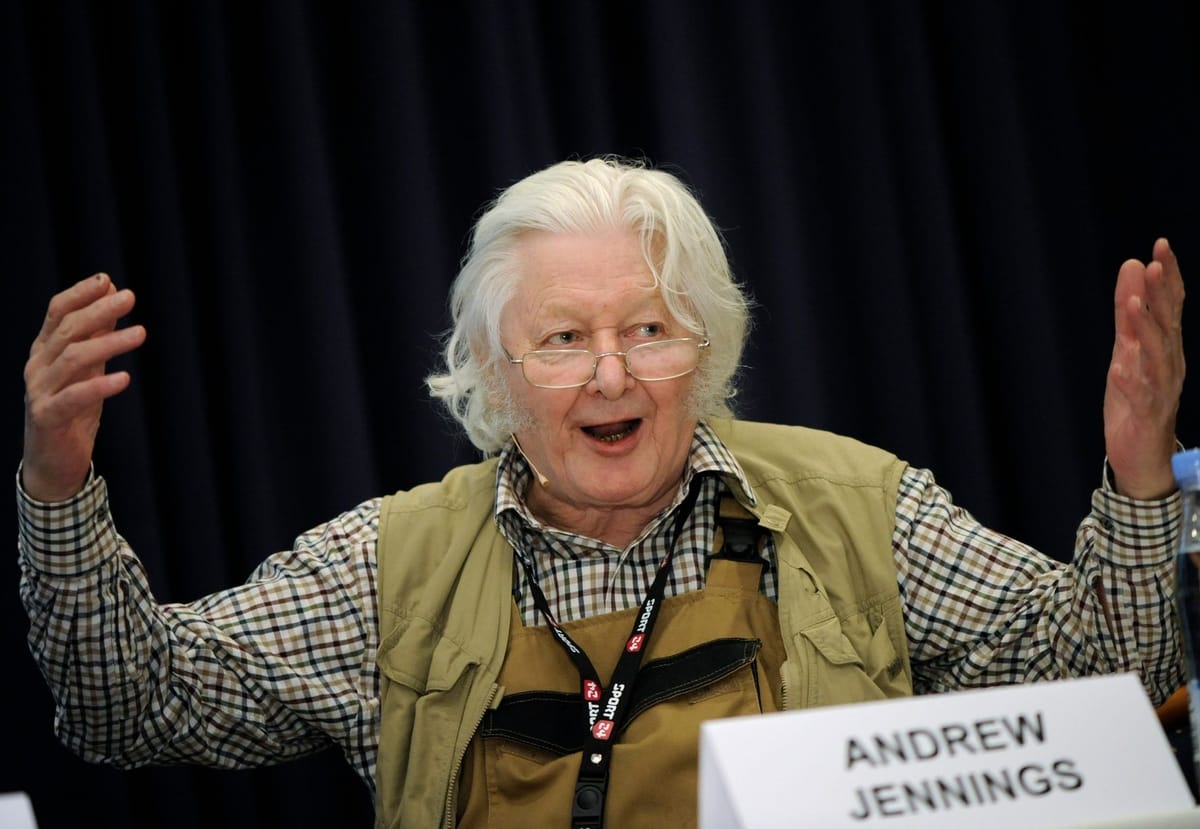
Please read the FAQ. Any journalist who is concerned with our topics is welcome to contact us.
Jens Weinreich
Jens has now covered more sessions (33+17) and much more meetings of the International Olympic Committee (IOC) than he has years of life behind him. And he is still fascinated by the horrors of global sports politics. His main working focus: Olympic crime, sports rogue states, mega-events (bids, finances), countering Olympic propaganda. He has covered 14 Olympic Games - and renounced other - and more than twenty other mega-events and the most important World Championships in Olympic sports (football, athletics, aquatics). Sometimes, therefore, he thinks he knows institutions like the IOC or FIFA and their leaders better than he knows himself. He has also covered all Olympic bid competitions since 1991, nationally and internationally.
He has more than thirty years of experience in all media genres. He has received numerous journalism awards for his work and investigations. For example, he has been awarded several times as Germany's Sports Journalist of the Year and Online Journalist of the Year (although he has not considered himself a sports journalist for a long time, but an analyst and political journalist with an investigative focus). In Germany, Jens has won the most important investigations awards: Nannen-Preis Investigation, for the DER SPIEGEL revelation on Germany's corrupted bid for the 2006 World Cup, and Wächterpreis, for his revelations about financial irregularities in Leipzig's bid for the Olympics.
Jens is particularly proud of two other awards:
- In 2006, he was declared persona non grata by FIFA's Committee for Ethics and Fair Play, with Mohamed Bin Hammam from Qatar as a member: because his offences, investigating and bringing facts to light, were "comparable" to those of his fatherly friend Andrew Jennings and "the damage to FIFA’s image had been considerable". For Jens, this was the FIFA Literature Prize.
- Five years later, Jens received the Play the Game Award, together with Andrew. According to the jury "they not only sought, but also found the documentation, and that is a great achievement which has been fundamental for the world public’s understanding of FIFA as it is today."
In 1998 already, Jens published an investigative book on the FIFA mafia. Based on this, he was instrumental in uncovering the gigantic ISL bribery system, one if not the biggest bribery scheme in Olympic history: At least CHF 142 million for leading officials in FIFA, the IOC, UEFA, CAF, FIBA, AIBA, IAAF and several more. There were several sports officials, not only from the football business, who spent a lot of money and expensive lawyers trying to keep Jens quiet and even destroy his livelihood. These people failed.
Without the work of the very small circle of early FIFA investigators, of which Jens was one (read more about those early years and the investigative network), the criminal trials against the FIFA mafia in the USA would never have happened.
IRS agent Steven Berryman, who played a major role in the investigations based on the RICO Act to combat organised crime, once put it this way: "Much of this may never have come to light were it not for the tenacious and dedicated research and reporting over the decades of investigative journalists".
He has made a number of TV documentaries – on state doping, on Juan Antonio Samaranch sr, on Olympic crime and Olympic bids, and his favourite documentary on Sepp Blatter (The Untouchable), to whom he remains strangely warmly attached to this day. When it came to producing a proper magazine on the death of Andrew Jennings in 2022, Blatter was one of the first to agree to an obituary, even before many journalists.
Jens grew up in a divided country, behind a wall of barbed wire, enjoying the often dubious blessings of a socialist education and indoctrination system. So he learned a thing or two about ruptures and the downfall of a social order. And he has learned that nothing is as it seems - certainly not the enormous number of medals won by GDR athletes in all the arenas of the world: The first article Jens has ever published, still behind the Berlin Wall, was about the first coach of the then European women shot-put champion Heidi Krieger. Heidi Krieger is now called Andreas Krieger. And he donated his gold medal, won as Heidi, under the influence of a state manipulation and doping system, more than twenty years ago for a prize that was awarded to people who had rendered outstanding services in the real fight against doping.
All these East German experiences have decisively shaped Jens' understanding of journalism: As a journalist you have a duty, get your job done, no excuses, better no compromises, never being satisfied with a few quotations, but always trying everything to get hold of documents, open up sources and get closer to the core of the story.
In 2020, Jens published a document that he considers perhaps the most important paper he has ever been allowed to publish: The list of all transfers from the IOC to an Olympic Organising Committee (ROCOG, Rio 2016), which proves that only about half of the IOC payments are funds. Everything else is value-in-kind, which can be arbitrarily interpreted and its accounting is quite controversial. It is precisely such research that can best counter Olympic propaganda. An IOC president, Jacques Rogge, once put it in writing to Jens that he was the "best documented Olympic journalist". You are welcome to test whether this is so in THE INQUISITOR, but remember: investigative research and knowledge acquisition are not a sprint, but a marathon - so give the project a little time.
For THE INQUISITOR, Jens acts as as the founder and as an author, trying to keep the threads together and deliver a high-class team product. At the same time, he continues to work on his label SPORT & POLITICS, from which there are only synergies for THE INQUISITOR, and on research for the leading German news magazine DER SPIEGEL. So far Jens has published seven books and has been despairing of number eight for years, but hopes that it will be finished before he falls into his grave.
You may follow Jens on Twitter/X and Bsky, subscribe his own Newsletter and check his websites SPORT & POLITICS and JensWeinreich.de. Detailed CV.
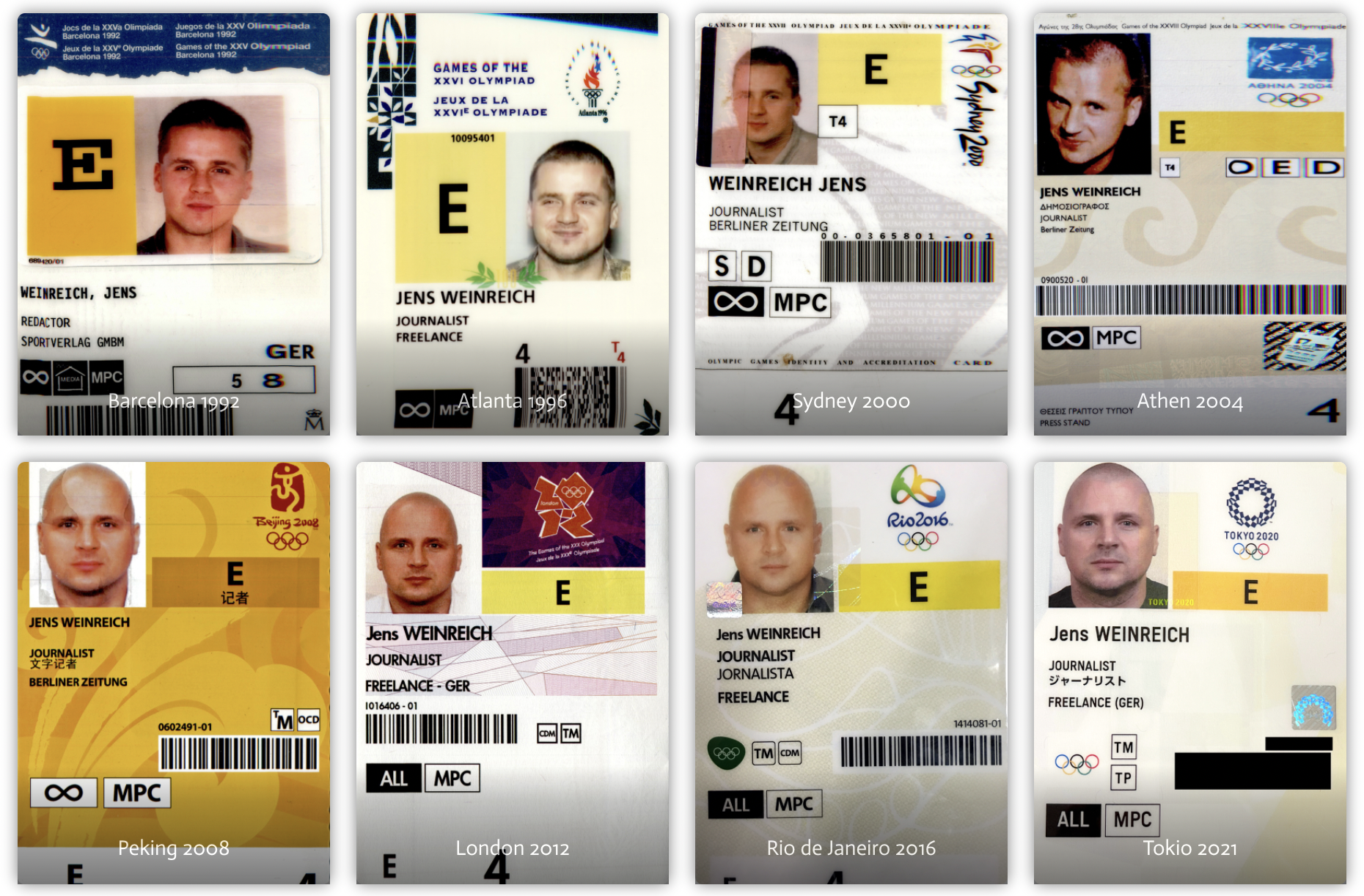
Craig Lord
Craig has covered every Olympic Games, World Championships and European Championships since 1989 as Swimming Correspondent for The Times and Sunday Times. At the forefront of reporting the drug scandals that have dogged swimming for decades, including the corruption of East German and Chinese systematic cheating, Craig broke several of the biggest stories in the history of anti-doping controversies. Those included:
- revelations that would lead to the suspension of Michelle Smith de Bruin, the Irish triple Olympic champion of 1996, for manipulating a drug-test sample,
- exposure of abuse of teenage athletes at the heart of a China Crisis in swimming in the 1990s that took off where East Germany's systematic cheating had left off with the fall of the Berlin Wall in 1989,
- and the fall from grace of Sun Yang, in 2012 the first Chinese man to win Olympic gold in the pool, after a second anti-doping offence in 2018.
Craig has been recognised for his work by the Sports Journalists Association of the United Kingdom, the International Swimming Hall of Fame and the American and World Swimming Coaches Associations. The latter has described Craig as "the conscience of swimming".
For THE INQUISITOR, Craig acts as one of the founding partners and authors.
You may follow Craig on Twitter/X and visit his website State of Swimming (S.O.S.).
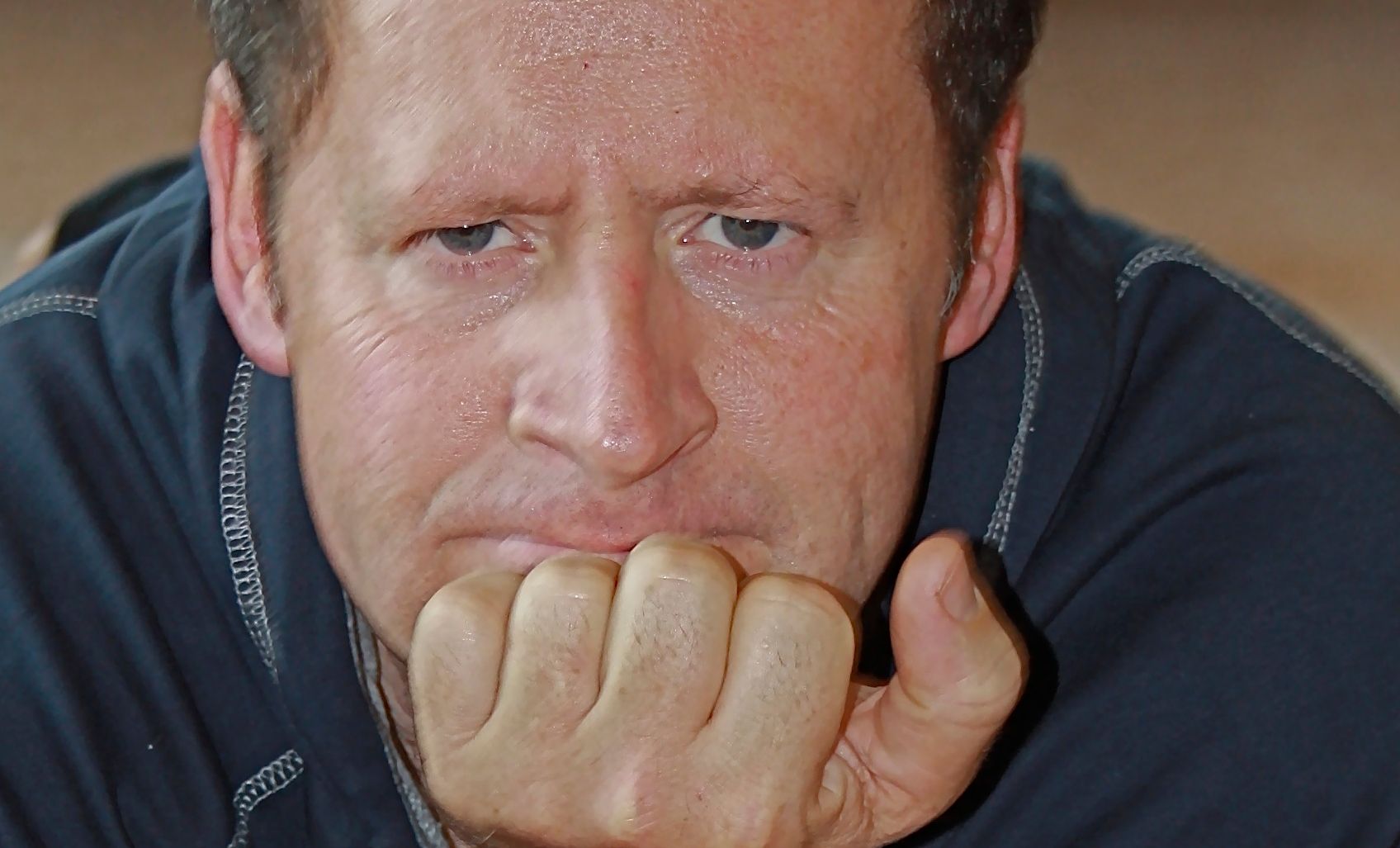
Romain Molina
Romain grew up in a French village in Isère, next to a farm and a retirement home. Far from journalism and the media, he worked in markets with his parents and grandparents, selling fruits and vegetables. Nothing destined him to investigate the complexities of the sports industry, except for his natural curiosity and an immoderate love for basketball.
Though he didn't manage to have a professional sports career, he launched several websites, webzines, and even a magazine in French-speaking Switzerland, focusing on another sport he cherished: football. Without pursuing higher education or journalism studies, he published his first investigation for CNN at the age of 21, delving into the four birthdates of a Congolese international player. Remaining independent, he went on to write for France Football, Le Temps, Blast, The New York Times, The Guardian, BBC, and Josimar.
His work took a different turn in April 2020 when he published an investigation on the sexual abuse of minors by Yves Jean-Bart, the powerful president of the Haitian Football Federation. Assisting the victims and their families, he had to resolve tragic situations that FIFA proved unable to address. With his contacts, he participated in the extraction of a person threatened with death and in the reintegration of several young girls who had suffered abuse at the FIFA Goal Center in La-Croix-des-Bouquets, near the capital, Port-au-Prince.
Despite death threats and legal pursuits, Romain never wavered and always kept the confidentiality of his sources. Supported by the International Federation of Journalists and FIFPRO (the global players' union) in his work, he was praised by Minky Worden, director of the Global Initiatives division at Human Rights Watch: "Romain Molina's goal was to defend the weak against the powerful."
His investigations led to the lifetime ban of Yves Jean-Bart by FIFA for systemic sexual abuse of minors, a decision that was later overturned by the Court of Arbitration for Sport (CAS). The vice president of the Haitian federation, Rosnick Grant, was also banned for life for the same reasons, a sanction confirmed by CAS, before which Romain testified. He also dealt with the case of Evans Lescouflair, the former Haitian Minister of Sports and Secretary of State, by assisting victims in coming forward. Lescouflair, who had fled the country, was arrested by Interpol in July 2022.
The impact of Haiti marked a turning point in Romain's life and in the protection of children in the world of sports. Following the arrests and sanctions, he was contacted from around the world regarding other cases of sexual abuse, primarily involving minors, covered up by national and international sports federations. This is how he exposed two decades of abuse against young female basketball players in Mali in The New York Times, leading FIBA to conduct an investigation confirming the allegations and resulting in the suspension of the president, vice president, secretary-general, and two coaches.
In December 2021, his investigation (co-authored with Ed Aarons of The Guardian) into child abuse in Gabonese football prompted an official response from the president of the republic, Ali Bongo, the very next day. Dubbed the Capello Gate after the main accused, former U17 national team coach Patrick Assoumou Eyi, three football coaches were swiftly incarcerated, as well as the president of the federation, Pierre-Alain Mounguengui, accused of covering up a pedophile network. Two other coaches, one in taekwondo and one in tennis, also ended up in prison as a result of Romain's investigations, which initially received no media attention and had to be published on his social media channels.
In total, more than 25 sports leaders around the world were banned, investigated, or imprisoned as a result of his work, primarily for acts of pedophilia and match-fixing. In France, he was one of the first people invited by the National Assembly's inquiry committee to testify about the dysfunction of sports federations. In response, the French Football Federation (FFF) wrote a special letter to French politicians, complaining about Romain's testimony, which had exposed "40 years of cover-ups" of sexual abuse by the FFF. An article that was never challenged by the federation and was confirmed by an audit by the French Ministry of Sports.
Amidst these horrors, Romain always maintains hope for a cleaner world. Despite knowing that many preliminary rounds of the World Cup are rigged, he is a lover of these events. He conducted immersive reports with the Cambodian, Iraqi, Pakistani, and Yemeni national teams, and he also published an investigative book on the ongoing war in Yemen with researcher Buthaina Faroq.
Author of a dozen books, some of which became bestsellers in France, his writings have been translated into Spain, the UK, Russia, and Uruguay. His international perspective suits him well, as he has lived in England, Scotland, and now in Andalusia, Spain. While several FIBA officials may dislike him, he still indulges in basketball and even won the championship and the cup in Gibraltar a few years ago.
For THE INQUISITOR, Romain acts as one of the founding partners and as a regular author.
You may follow Romain on Twitter/X and Instagram, watch his Youtube channel and visit his website.
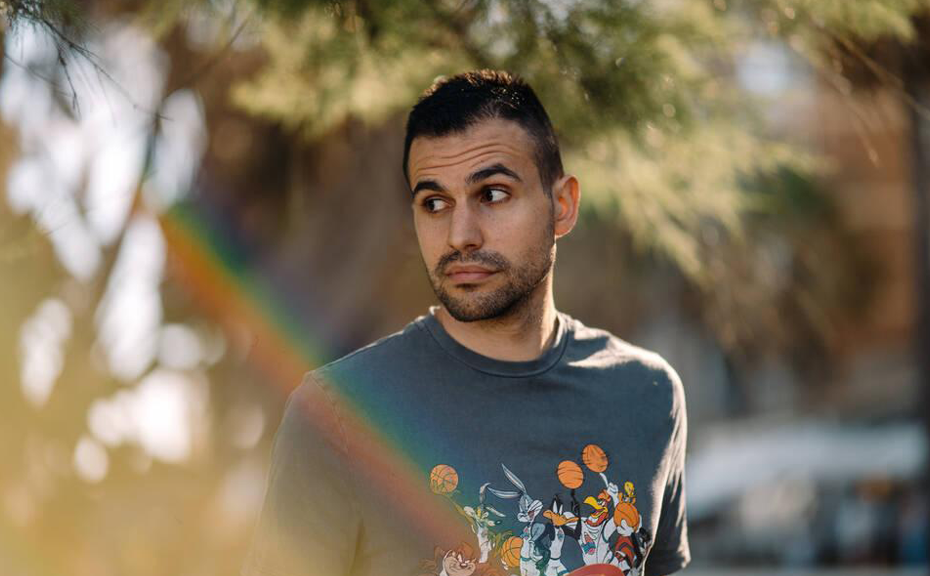
Bonita Mersiades
Bonita is one of the first people in the world working within football to call out FIFA and world football administration, including her own FA, for the lack of transparency and integrity in the 2018/2022 World Cup bidding contest, as well as its business practices more broadly. She is recognised internationally as a FIFA whistleblower.
Bonita has worked in football as team manager of the men's national team (Socceroos), and as head of corporate and public affairs for the Australian FA including the 2018/2022 World Cup bid. She has also been a volunteer in football almost her entire life.
She is founder of Fair Play Publishing, an independent, boutique publishing company, founder of the Football Writers' Festival and Manly Writers' Festival in Australia, and has authored three books on football including the only insider account of 2018/2022 bidding contest, Whatever It Takes - the Inside Story of the FIFA Way.
She has written occasionally for The Guardian, the Sydney Morning Herald, The Age, The Telegraph (UK) and specialist sports business publications, and also at her own blog. For THE INQUISITOR, Bonita acts as one of the founding partners and authors. She is our first point of contact Down Under and in Oceania. Bonita lives in Sydney, Australia.
You may follow Bonita on Twitter/X and visit her websites Fair Play Publishing and Bonita Mersiades.
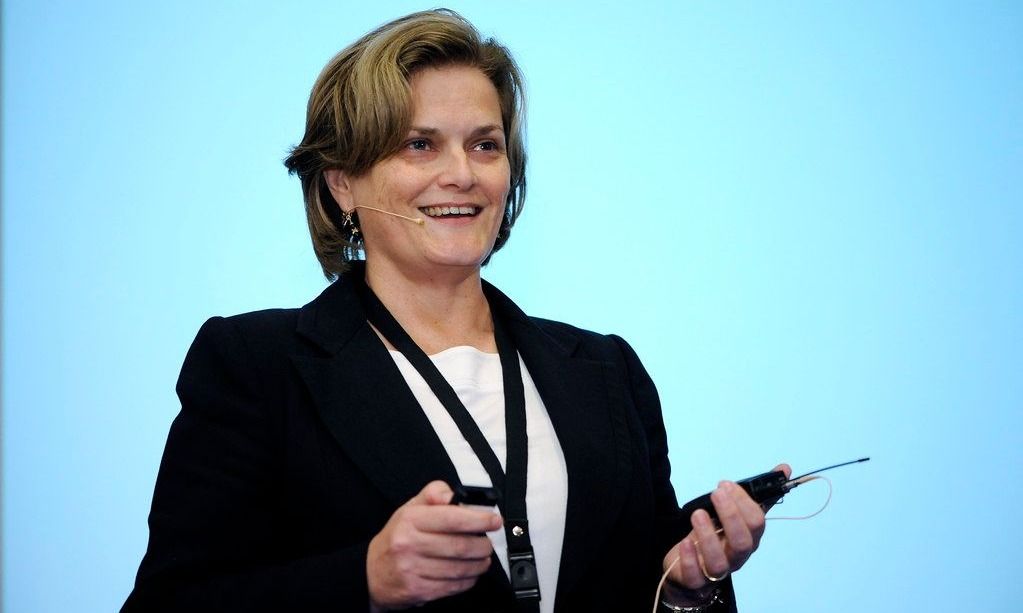
Lars Jørgensen
Lars has worked as a journalist in Denmark since 1987. He has covered sports governance since 1999 when a British colleague at the Danish tabloid Ekstra Bladet, Andrew Jennings, introduced him to the global sports industry during their coverage of the Salt Lake City bribery scandal that involved dozens of IOC members.
Inspired by the excellent work of Andrew Jennings, Lars has ever since reported on sports related crimes such as corruption, doping, hooliganism, match fixing, and sexual abuse, both as a staff reporter at Ekstra Bladet and Politiken and as a freelance reporter for The Danish Institute for Sports Studies, Play the Game, Denmark’s Radio, Weekendavisen, Information, Jyllands-Posten, B.T., and Kristeligt Dagblad as well as the Greenlandic newspaper Sermitsiaq.
Having also worked as a crime reporter and as a political reporter in Danish news medias, Lars has devoted much of his journalism career to investigate the political implications of Denmark’s crown prince Frederik’s membership of the IOC from 2009 to 2021.
He is the author of two books – Frederik og flammen (Frederik and the flame) and Konge af en anden verden (King of another world) – that covers a royal debate in Denmark over the future Danish king and head of state’s controversial Olympic career in an undemocratic global sports organization with a well-documented history of corruption. He has also written a book about the international sailing event America’s Cup.
Lars holds a master’s degree in journalism from Aarhus University, Denmark. He has twice been nominated by The Danish Union of Journalists for the union’s journalist award, Cavlingprisen, in recognition of his investigative coverage of doping in professional cycling.
For THE INQUISITOR, Lars will be a regular contributor – and a wonderful addition with all his skills and experience.
You may follow Lars on Twitter/X.
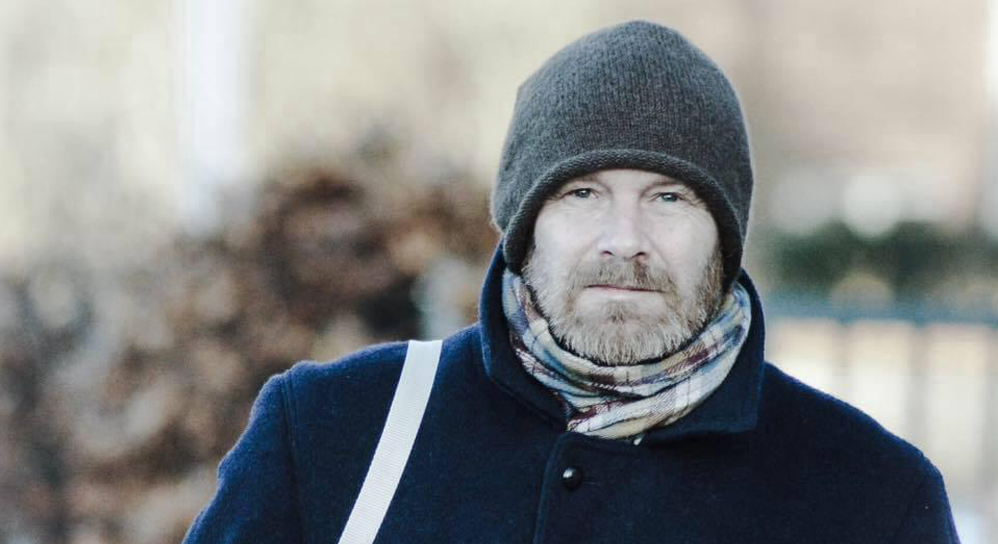
Lúcio de Castro
Lúcio holds degrees in journalism and history. He chose to be a reporter and has never wavered in his conviction about the journalist's role: to scrutinize power. He always knew that scrutinizing power didn't quite fit into the equation where the two parties are the media companies and their interests in sports event rights. He preferred to persist, and he continues to do so today.
On this path, he lost count of how many times leaders of Brazilian sports entities demanded his dismissal from media companies. He knows they succeeded every time. In each instance, he recalled the speech of the anthropologist Darcy Ribeiro, one of Brazil’s greats, as he recounted how he was defeated by powerful forces in his fight for children's literacy, for indigenous peoples, and for education in Brazil: "my failures are my victories. I would hate to be in the place of those who defeated me."
Between one failure and another, but always certain that he would hate to be on the side of those who defeated him, Lúcio won numerous journalism awards in Brazil and around the world. Including the Gabriel Garcia Marquez Award, South America’s most prestigious award, competing against works from the United States, Portugal, Spain, and Central America. His documentary series Memórias do Chumbo – O Futebol nos Tempos do Condor, an investigation spanning four countries (Brazil, Argentina, Uruguay, and Chile), exposed how the dictatorial governments that ruled the continent from the 1960s to the 1980s infiltrated soccer and used it for their purposes.
In this investigation, he managed to confirm what had previously been a rumor: that João Havelange had heeded the request of a Brazilian ambassador to secure the release of a son imprisoned in Argentina in 1978, in exchange for guaranteeing the hosting of the World Cup in that country that year. In the Brazilian chapter, he demonstrated with ample documentation how the military forces infiltrated soccer and the four-time world champion national team in 1970, even with the presence of players and officials in torture centers as accomplices. The documentary toured the world and received awards at various film festivals.
Some investigations, such as Dossiê Vôlei, managed, with extensive documentation, to reveal the "marketing agencies" set up to divert public sponsorship money from the Brazilian Volleyball Confederation (CBV), then presided over by Ary Graça, the current president of the FIVB. The Office of the Comptroller General of the Union (CGU), a Brazilian state oversight agency, investigated the CBV based on these reports and concluded that the series was entirely accurate.
Throughout his career, he conducted various reports on the Brazilian Olympic Committee (COB) and its then-president, Carlos Arthur Nuzman. In a series of 32 reports, he exposed the embezzlement by the Organizing Committee of the 2016 Olympic Games in Rio. These reports served as a starting point for investigative bodies like the Federal Police and the Public Prosecutor's Office. The series received awards.
However, Lúcio believes that the greatest recognition for the series and the years dedicated to Nuzman came spontaneously from the Brazilian public on October 5, 2017. On the day Carlos Arthur Nuzman was arrested on charges of active corruption, money laundering, forming a criminal organization, and illicit enrichment, the name Lúcio de Castro trended on Twitter for hours.
Regarding the Brazilian Football Confederation (CBF), he managed to show the connection to a "marketing agency" closely tied to Ricardo Teixeira and their exorbitant gains. In a report in ESPN Magazine, he revealed how the parties were linked.
In addition to the aforementioned awards, he also received
- the Ibero-American UNICEF/EFE Award in 2003,
- the Vladimir Herzog Award (2012),
- the Petrobras Journalism Award twice (2017 and 2018),
- the Embratel Press Award three times (2003, 2006, and 2014),
- and the OAB Human Rights Award four times (2008/2009/2011/2013), among others.
In recent years, faced with the repeated threats to Brazilian democracy, he turned his attention to the government of Jair Bolsonaro, believing it to be the only acceptable path for a reporter at that time. In his solitary work, he managed to show how the now former president diverted public funds for fuel purchases while serving as a federal deputy. Among other cases, he revealed that corrupt individuals embezzling funds from the Ministry of Education were operating with the former president directly from the government palace. In the current year, he demonstrated, through a comprehensive report with extensive documentation, that the sports minister secured public funds for an event benefiting his own company.
Lúcio was delighted by the arrival of THE INQUISITOR, alongside such a respected team, as he believes it offers a great motivation to once again focus more attention on the wrongdoings in sports. He is certain that no environment is as conducive to abuse of power and corruption as the sports, due to the complete lack of international oversight mechanisms, among other factors. He intends to address this in reports and analyses, always certain that being on the side of the lessons of Darcy Ribeiro is far better than being in the company of the likes of Nuzman, Graça, Havelange, Infantino, Bach, and others.
For THE INQUISITOR, Lúcio will be a regular contributor and author – and, together with Federico Dario Teijeiro, our first point of contact in South America.
You may follow Lúcio on Twitter/X and visit his website Agência Sportlight.
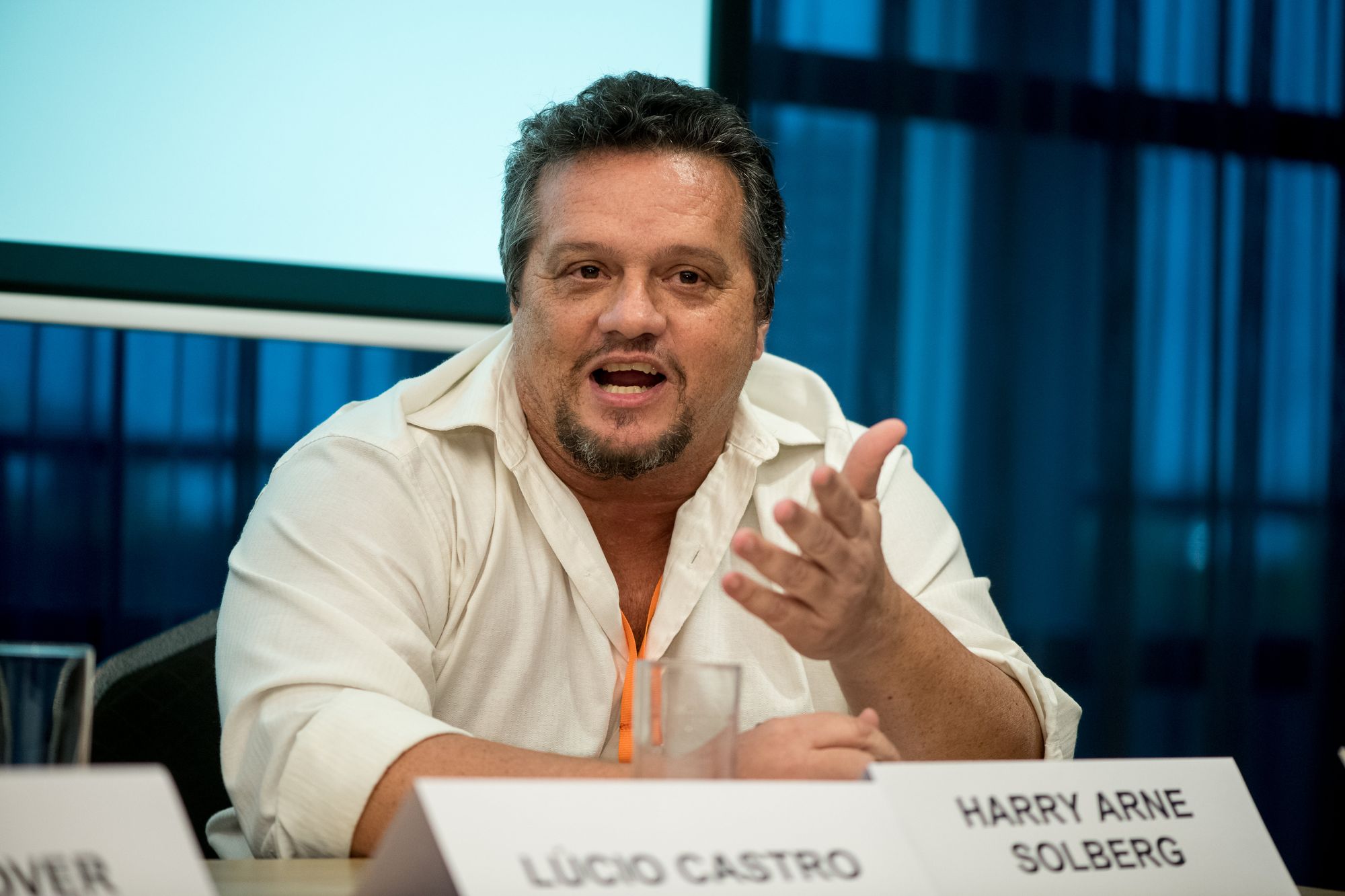
Andy Brown
Andy is a freelance journalist who has been writing about the governance of sport for over 15 years. He is the editor of The Sports Integrity Initiative, an independent website dedicated to exposing corruption in sport, particularly focusing on the myth that the role of sports governance is to protect athletes. To be clear, sporting governance bodies protect sports governance only, and sanction athletes.
In 2021, Andy and a team of journalists won an Impact Award from Investigative Journalism for Europe for The Devil is in The Data, an investigation that exposed the role of so-called integrity companies in collecting data from sport and selling it to poorly regulated gambling operators, facilitating match-fixing. Investigations in this area are continuing, and have exposed how poor oversight has allowed regulatory loopholes to be utilised by sport to agree deals with gambling operators connected to organised crime and people trafficking.
In 2021, Andy compiled a six part investigation into the Alex Schwazer case for Play The Game, which exposed how sporting organisations collude to win doping cases against people who have blown the whistle on corruption in anti-doping. The investigation brought international attention to the case, which later became the subject of a Netflix documentary, Running for my Truth.
Andy was editor of World Sports Law Report for eight years, where he became interested in the regulatory side of sport, particularly in anti-doping. He developed successful conferences on anti-doping, player contracts and betting on sport. He has also worked for The Press Association and for numerous trade magazines, all of which were connected to the governance of sport.
Through his work, Andy has realised that anti-doping bodies focus on sanctioning athletes and only punish organised, systemic doping when journalists being it into the international spotlight. He has seen and has written about how sport uses its supposed autonomy to escape liability for regulations that medically harm athletes. He is now focussing on exposing how sport’s relationship with gambling is facilitating slavery and human trafficking.
For THE INQUISITOR, Andy will be a regular contributor and a member of the editorial team.
You may follow Andy on Twitter/X and check his Sports Integrity Initiative website.
